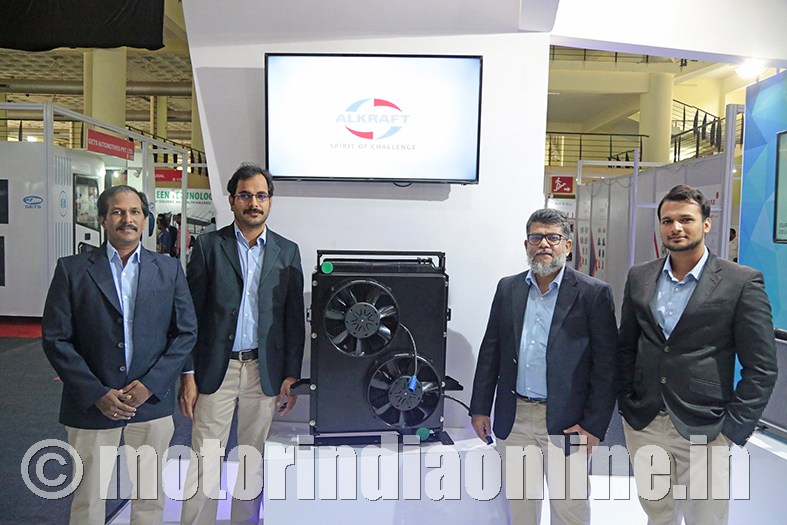Alkraft Thermotechnologies, one of India’s leading automotive heat transfer technology companies made its presence felt at the show with its range of products for BS-VI buses, alternative fuel buses and electric buses.
The Chennai-based company revealed its next-generation products for the domestic bus industry entirely focused on the theme of cleaner technologies.

Commenting on the shifting focus towards cleaner technologies, Alkraft Director, Mr. Basil Siddeeqi, states: “Buses powered by clean tech remain the mainstream agenda item in smart city and sustainable mobility visions for the future. Hence the industry is poised for unprecedented growth in the years to come. The megatrend of electrification of automobiles is likely to be led by the bus industry in the commercial vehicle space.”
“We have been working on heat transfer systems for these applications for some time now, and we are proud to play a role in enabling these visions for the future”. he added. Earlier this year at the Auto Expo 2018, Alkraft had presented BS-VI products and battery cooling systems for EVs.
In an electrified powertrain, especially in the case of buses, extreme heat sensitivity of electrical and electronic components present herculean challenges to OEMs.
Components like electric motors, battery packs, inverters, and controllers need unique cooling solutions that ensure optimal performance and reliability. Further, technologies involved in these components, batteries and electric motors, in particular, undergo rapid changes and improvements.
“EV makers are asking for innovative and fool-proof solutions that are modular in design and engineering. This versatility and flexibility to suit evolving technologies is a key element of our product design”, notes Mr. Siddeeqi.
Asked about the technology divide between the developed markets and India in this regard, he said that the gap is negligible. “All the players are in similar stage of developing electrified mobility, so this is a great moment for companies like us to actively participate in the evolution of technology. There are plenty of avenues for new product development and new business opportunities”, he notes.
“Of course, volumes cannot be compared to that of conventional products at the moment, but this is a necessary investment in our collective future”, he adds, while asserting that the existing solutions for diesel buses will continue to undergo technological advancements that make them more efficient.
Alkraft’s approach, as Mr. Siddeeqi puts it, has always been to cultivate lateral thinking. “Developing solutions to tough problems requires that we move beyond our comfort zone and trodden paths to engage with new ideas even outside the automotive industry. That’s how we innovate”, he remarks.
Another area that Alkraft sees enormous growth potential in the domestic bus market is alternative fuels, especially CNG. It is usually the diesel engines that are adapted for CNG with some engineering tweaks, but they require optimal heat transfer solutions for higher heat dissipation that can be incorporated within the limited space constraints.
Thus, according to Mr. Siddeeqi, solutions for CNG buses require new system design and packaging, and dramatic performance improvements, all within the available scope.
“These challenges extend to EV products as well, as electric powertrains are largely adapted to existing chassis and engineering models. Yet, our products are required to work efficiently, be lightweight, and be compactly packaged”, he says.